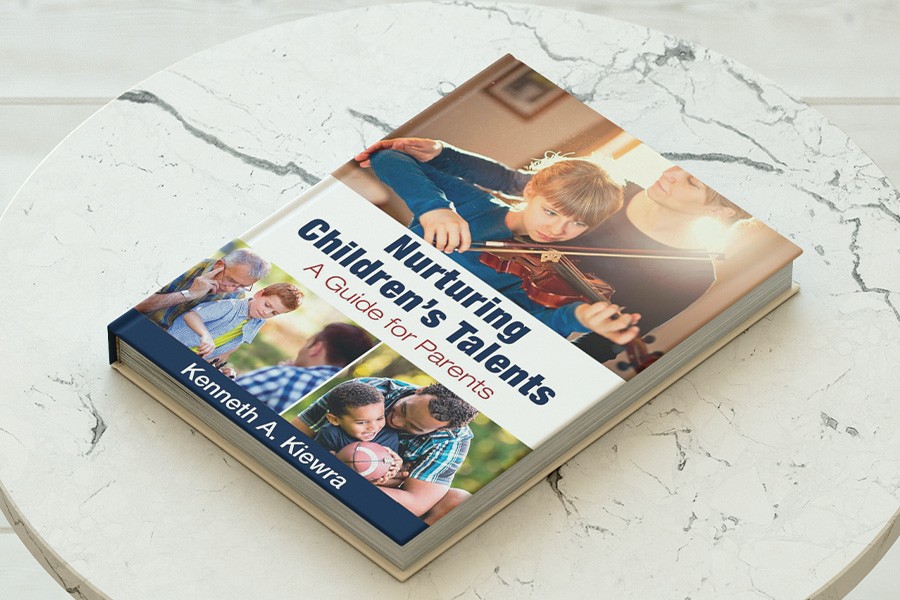How to Identify and Nurture Kids' Talents: Effective Strategies for Parents
Published 14 June 2024 at 10:51
Tickikids Blog Singapore > Parenting > How to Identify and Nurture Kids' Talents: Effective Strategies for Parents

Many believe that talent is an inherent trait, something one is born with. However, talent is not purely innate; it is cultivated and developed over time, and parents play a crucial role in this process! Given the right conditions and supportive environment, every child can learn and excel in a given area. With dedication, practice, and the right guidance, the potential for talent exists in all individuals. It is the nurturing environment, combined with effort and perseverance, that transforms potential into tangible skills and abilities. Parents, educators, and mentors have the power to create these conducive conditions, enabling children to unlock and realise their full potential.
Spotting talent in early childhood is a fascinating and rewarding process. Talent is often manifested in a child's actions—how they approach tasks, solve problems, and engage with their environment. These actions can be observed in the child's speed, accuracy, creativity, and efficiency. For instance, a child who solves puzzles more quickly and with greater ease than their peers may be demonstrating early signs of strong spatial reasoning abilities. Similarly, a child who effortlessly creates intricate and beautiful drawings could be showcasing an innate artistic talent.
When abilities are particularly strong, children display their talents naturally and with little effort. These talents shine through in their everyday activities, making it possible to identify and nurture them from a young age. A child with a strong musical talent might pick up melodies quickly and replicate them with precision, while another might display an exceptional understanding of numbers and mathematical concepts, solving complex problems that baffle their peers.
Recognising these talents early on is crucial, as it allows parents, educators, and mentors to provide the right kind of support and opportunities for development. Encouraging a child in areas where they show exceptional ability can lead to increased confidence and further skill enhancement. Providing a stimulating environment, access to resources, and opportunities to practice and refine their skills can help in maximising their potential.
TickiKids is always in the know about the best nurturing classes for children and is eager to emphasise the crucial role parents play in this developmental journey!

Image Credit: freepik
In his recent book, Nurturing Children's Talents: A Guide for Parents, Kenneth A. Kiewra - professor of educational psychology at the University of Nebraska-Lincoln, expert on talent development, and international public speaker, - outlines practical steps that parents can take to support their child's development of talent in any area that piques their interest.
This book is a valuable resource for all parents, emphasising that talent is cultivated, not innate. It provides parents with insights and step-by-step plans to help their children achieve their potential. Kenneth A. Kiewra, drawing from his personal experience of raising a chess champion and extensive research involving talented individuals—including national, world, and Olympic champions—and their parents, offers practical and proven strategies for nurturing talent across various fields.
Those appropriate conditions include five things: an early start, expert instruction, deliberate practice, a center of excellence, and singleness of purpose. Let's consider these points more broadly, keeping in mind not only the goal of cultivating talent at any cost but also aiming to create an environment where this talent can naturally flourish.

Early Start
Talent often takes root early in life, usually beginning at home!
Sir Arthur Conan Doyle, an author most famous for creating the characters Sherlock Holmes and Dr. Watson, owed much of his success to his mother, Mary. She was his saving grace, filling his childhood with her incredible storytelling and fuelling his future literary career. A talented storyteller, Mary knew how to use tones of voice to entertain children and where to pause, leaving them eager for the next evening's continuation. Doyle adopted these techniques in his own narration, keeping readers glued to his detective stories until the very end.
By creating a nurturing environment and fostering curiosity and exploration, parents play a pivotal role in shaping their child's developmental path. They expose their children to diverse activities, observe their evolving interests, and provide support as they explore different pursuits. This early engagement enables children to acquire a diverse range of skills, discover their passions, and establish a solid groundwork for further specialised talent development as they mature.

Image Credit: freepik
Children's natural inclinations and abilities can often be observed through their interests, behaviours, and interactions with their environment. To spot talent early, pay attention to:
- Notice what activities or subjects captivate the child's interest and enthusiasm. Genuine passion is a strong indicator of potential talent.
- Observe how quickly and effectively the child learns and masters certain skills compared to their peers. Natural aptitude often shows in these areas.
- Look for innovative approaches or unique solutions the child employs when faced with challenges. Creative thinking is a hallmark of many talents.
- Talents often manifest effortlessly and consistently. A child who consistently excels in a particular area with ease may possess innate talent.
- Seek feedback from teachers, mentors, or coaches who interact regularly with the child. Their insights can provide valuable perspective on the child's strengths and potential areas of talent.
Expert Instruction
Having a positive influence or role model is crucial for nurturing talent in children. Parents often serve as primary role models, demonstrating skills and behaviors that children observe and emulate. Whether it's learning to draw or kicking a football, children absorb these abilities by watching and interacting with their parents.
However, if parents do not possess expertise in a particular area of interest for the child, it becomes essential to identify another mentor or role model as early as possible. This mentor could be a teacher, coach, family friend, or even a professional in the field the child is passionate about. Finding the right mentor allows children to receive guidance, inspiration, and structured learning experiences that facilitate their talent development.
The influence of a mentor goes beyond mere instruction; it encompasses encouragement, support, and the imparting of values and work ethic necessary for skill refinement and mastery. Mentors can inspire children to set and achieve goals, navigate challenges, and cultivate a lifelong passion for their chosen pursuit.
Deliberate Practice
Practice among the talented is always intentional and purposeful, aimed at specific goals and often pushing beyond comfort zones. Children must take the lead in nurturing their own talents through passion and dedication, with parents playing a supportive role in guiding and facilitating their journey. Parents recognise and address their children's talent needs much like they would address any other essential requirement. Just as they wouldn't neglect a medical need, they strive to provide the necessary support and resources for talent development. Ultimately, their motivation stems from a deep love for their children and a desire to see them achieve fulfilment in their chosen pursuits.
Center of Excellence
Establishing a hub of excellence requires creating an environment where children can flourish and maximise their capabilities. Parents play a crucial role in this endeavour by providing access to top-tier resources, including expert coaches, state-of-the-art training facilities, and educational materials tailored to their child's interests. They cultivate a culture that values excellence by setting lofty benchmarks, celebrating milestones, and instilling a mindset focused on continuous growth. This supportive atmosphere motivates children to aim for excellence, equipping them with the tools they need to achieve their aspirations.
Regular reading, visiting theatres, museums, or sport events as a family routine creates a nurturing environment at home that helps to unlock a child's talent. These activities stimulate curiosity, creativity, and critical thinking, providing a rich foundation for learning and growth. By engaging in these cultural experiences together, families foster a love for the arts and education, encouraging children to explore their interests and develop their unique abilities. This consistent exposure to diverse forms of knowledge and expression not only enhances a child's cultural literacy but also supports the discovery and cultivation of their individual talents.

Image Credit: freepik
Singleness of Purpose
Singleness of purpose involves a steadfast commitment to a particular goal or area of talent development. Parents play a role in fostering this by guiding their children to prioritise their endeavours and remain dedicated to their chosen pursuits. They aid in defining clear objectives, devising a structured plan, and minimising distractions that could derail progress. However, this approach can be somewhat contentious, as children's passions and interests can change unpredictably. Therefore, it's crucial for parents to be empathetic and attentive, avoiding undue pressure or rigidity. By balancing encouragement with sensitivity to their child's evolving interests, parents can support their development effectively while respecting their individual journey.
Who knows, maybe you have a child prodigy at home?
Beethoven: a Child Prodigy
Ludwig van Beethoven's musical talent was evident from an early age, with his father providing his initial piano and violin instruction. Reports suggest that his father was a very strict and even tyrannical teacher, incorporating corporal punishment into Beethoven's early musical education. Stories recount a young Ludwig, often in tears, being forced to practice at the keyboard, even in the middle of the night. Such was the rigor of home education during that period.
Ludwig made his public debut on March 26, 1778, advertised as a “Wunderkind,” performing various clavier concertos and trios. His first significant teacher was Christian Gottlob Neefe, who became the court organist in 1781. Neefe gave Beethoven piano and composition lessons and helped him secure the position of the court’s second organist in 1784. By the age of 11, music magazines were already heralding Beethoven as a most promising talent, predicting that he would become a second Wolfgang Amadeus Mozart if he continued on his path!
As parents, let's remember - the key to spotting talent in early childhood lies in careful observation and understanding of a child's unique ways of interacting with the world. By identifying and fostering these early signs of talent, we can help children grow into their full potential, turning their innate abilities into extraordinary achievements!